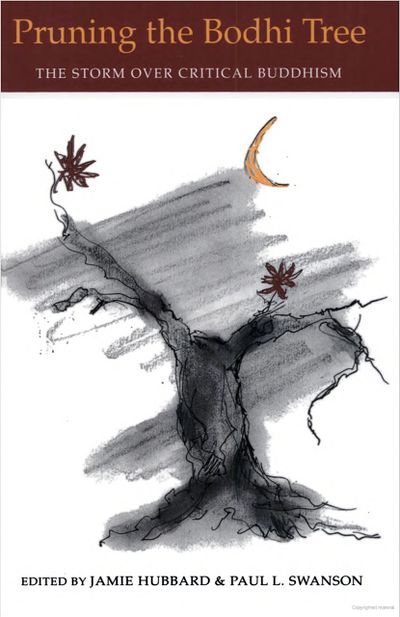- Introduction by Jamie HUBBARDvii
- List of Contributorsxxiii
- Source Creditsxxvii
- Bibliographic and Linguistic Conventionsxxixi
- Why They Say Zen Is Not Buddhism: Recent Japanese Critiques of Buddha-Nature3
- Paul L. Swanson
- Critical Buddhism and Returning to the Sources30
- Dan LUSTHAUS
- Critical Philosophy versus Topical Philosophy56
- HAKAMAYA Noriaki
- Topophobia81
- Jamie HUBBARD
- Scholarship as Criticism113
- HAKAMAYA Noriaki
- The Limits of Criticism145
- Paul J. GRIFFITHS
- Comments on Critical Buddhism161
- MATSUMOTO Shirō
- The Doctrine of Tathāgata-garbha Is Not Buddhist165
- MATSUMOTO Shirō
- The Doctrine of Buddha-Nature Is Impeccably Buddhist174
- Sallie B. KING
- The Idea of Dhātu-vāda in Yogacara and Tathāgata-garbha Texts193
- YAMABE Nobuyoshi
- A Critical Exchange on the Idea of Dhātu-vāda205
- MATSUMOTO Shirō & YAMABE Nobuyoshi
- The Core Elements of Indian Buddhism Introduced into Tibet: A Contrast with Japanese Buddhism220
- YAMAGUCHI Zuihō
- The Meaning of "Zen"242
- MATSUMOTO Shirō
- Critical Buddhism and Dōgen’s Shōbōgenzō: The Debate over the 75-Fascicle and 12-Fascicle Texts251
- Steven HEINE
- Is Critical Buddhism Really Critical?286
- Peter N. GREGORY
- Metaphysics, Suffering, and Liberation: The Debate between Two Buddhisms298
- LIN Chen-kuo
- Thoughts on Dhātu-vāda and Recent Trends in Buddhist Studies314
- TAKASAKI Jikidō
- A Reexamination of Critical Buddhism321
- SUEKI Fumihiko
- Thoughts on the Ideological Background of Social Discrimination339
- HAKAMAYA Noriaki
- Buddhism and the Kami: Against Japanism356
- MATSUMOTO Shirō
- Tendai Hongaku Doctrine and Japan’s Ethnocentric Turn374
- Ruben L. F. HABITO
- The Lotus Sutra and Japanese Culture388
- MATSUMOTO Shirō
Citations

